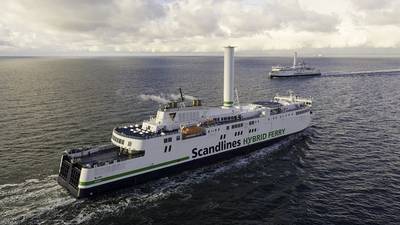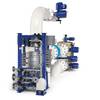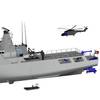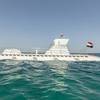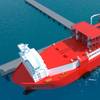Scandlines to Convert Rostock-Gedser Ferries to Methanol
In its sustainability report, Scandlines committed to ferry operations with zero direct emissions by 2040.
In support of this, the ferry company has signed an MoU with Caterpillar Motoren to explore the possibilities of converting the current MaK diesel of the Rostock-Gedser hybrid ferries to run on e-methanol. The use of e-methanol produced from renewable energy sources can reduce CO2 emissions by 95% under ideal circumstances.
Scandlines already combines three technologies on the Rostock-Gedser route: traditional diesel operation, battery operation and wind power. However, the goal of emission-free ferry operations on the Rostock-Gedser route requires Scandlines to use additional technology.
The plan is that Caterpillar Motoren will provide a test engine in its workshop 2025. If Scandlines concludes that the test engine meets the expectations and fulfils the conditions, there is a possibility that the first Scandlines diesel engine will be converted in 2027.
Caterpillar Marine first announced its investment in methanol engine technology in March 2022 as part of its combustion technologies innovations. In a follow-up release in September 2022, it announced methanol-readiness for the 3500E-series marine engines, which would be capable of being modified to run as dual-fuel engines in the future. In May 2024, the company announced plans to deploy the first set of field demonstrator methanol dual-fuel 3500E marine engines with Damen Shipyards Group in 2026. This was followed in November by the announcement that it has received DNV Approval in Principle of its Cat 3500E methanol-ready marine main and auxiliary engines.



